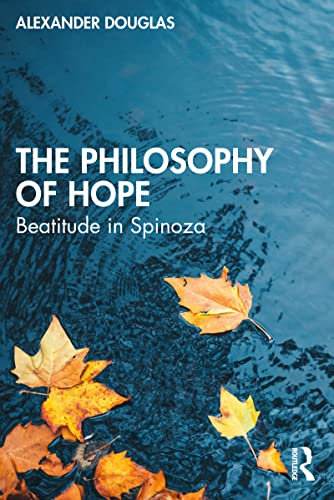sol2070 reviewed The Philosophy of Hope by Alexander Douglas
A fresh take on Spinoza
3 stars
(em português → sol2070.in/2023/12/livro-spinoza-philosophy-of-hope )
"The Philosophy of Hope - Beatitude in Spinoza" (2023), by Alexander Douglas, analyzes the philosophy of Spinoza (17th century) as a conception of existence that brings absolute contentment.
Despite being more accessible than the average philosophy book -- especially on Spinoza, which usually yields exponential complexity -- it is still aimed at those who are already familiar with philosophy and this author.
This wasn't such a problem for me, as Spinoza is my favorite philosopher, but it can be challenging as an introduction to this thought.
Douglas emphasizes Spinoza's path of "beatitude", something that in his seminal work "Ethics" doesn't receive a very detailed and explicit presentation, despite being a central point.
Beatitude (from the Latin "beatitudo") is a word associated with Christianity, meaning "spiritual happiness". Previously, it simply meant "happiness". In Spinoza, it denotes an extraordinary contentment, resulting from a full understanding of oneself …
(em português → sol2070.in/2023/12/livro-spinoza-philosophy-of-hope )
"The Philosophy of Hope - Beatitude in Spinoza" (2023), by Alexander Douglas, analyzes the philosophy of Spinoza (17th century) as a conception of existence that brings absolute contentment.
Despite being more accessible than the average philosophy book -- especially on Spinoza, which usually yields exponential complexity -- it is still aimed at those who are already familiar with philosophy and this author.
This wasn't such a problem for me, as Spinoza is my favorite philosopher, but it can be challenging as an introduction to this thought.
Douglas emphasizes Spinoza's path of "beatitude", something that in his seminal work "Ethics" doesn't receive a very detailed and explicit presentation, despite being a central point.
Beatitude (from the Latin "beatitudo") is a word associated with Christianity, meaning "spiritual happiness". Previously, it simply meant "happiness". In Spinoza, it denotes an extraordinary contentment, resulting from a full understanding of oneself and the cosmos.
The book helped to increase my appreciation of Spinoza. I like to read repeatedly about favorite subjects because it crystallizes understanding.
"The Philosophy of Hope" exhaustively analyzes some difficult points, such as the idea of "God or Nature" as being both all that exists and a kind of substance (the only one that exists) of which all phenomena are only modes.
He also demonstrates the similarities between Spinoza's thought and Taoism, despite the fact that the philosopher had no contact with this Eastern philosophy, in which, likewise, instead of an almighty god, there is only the universe interconnected in its expressions. Harmony and natural flow lie in not going against reality or nature.

